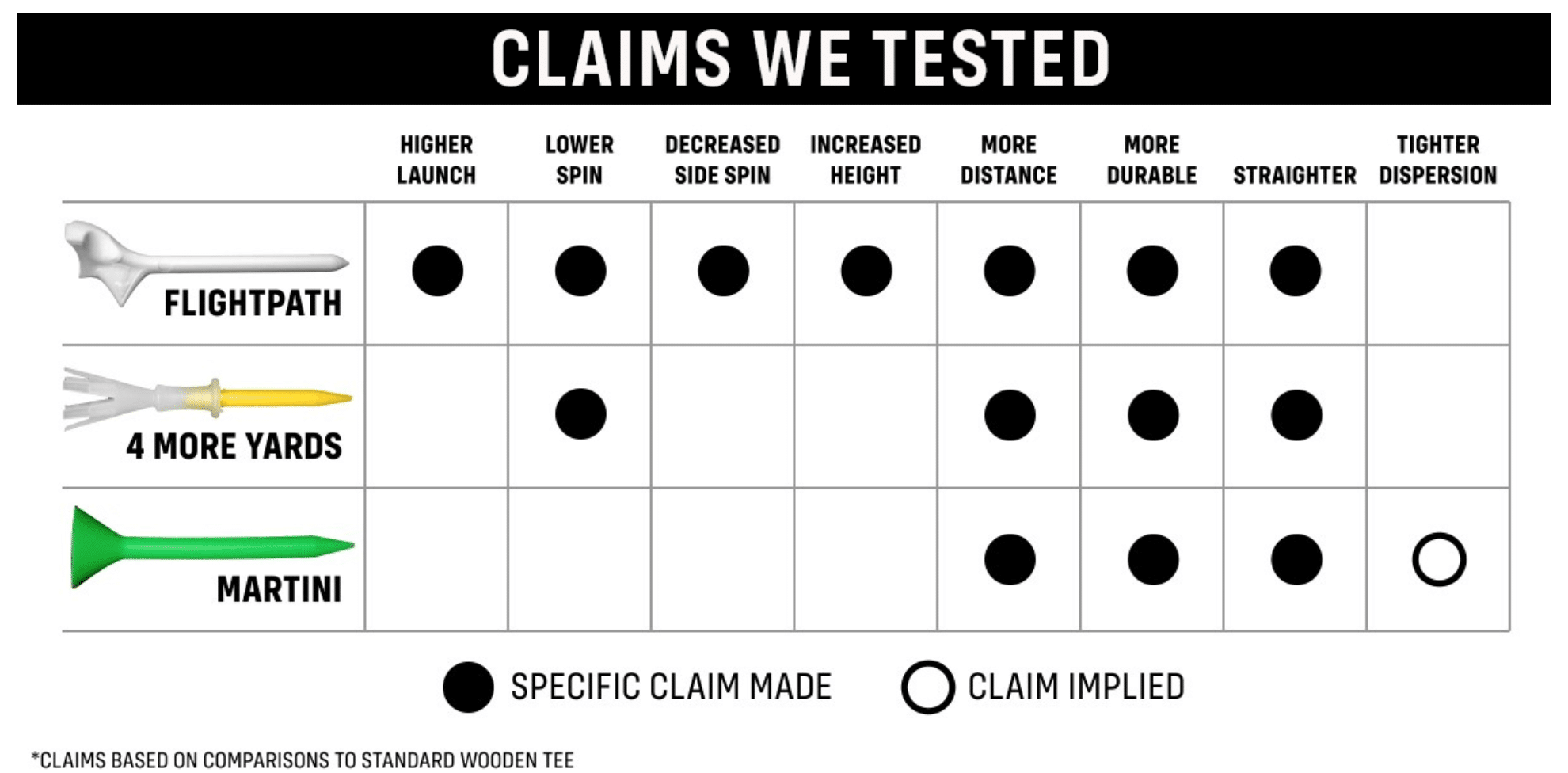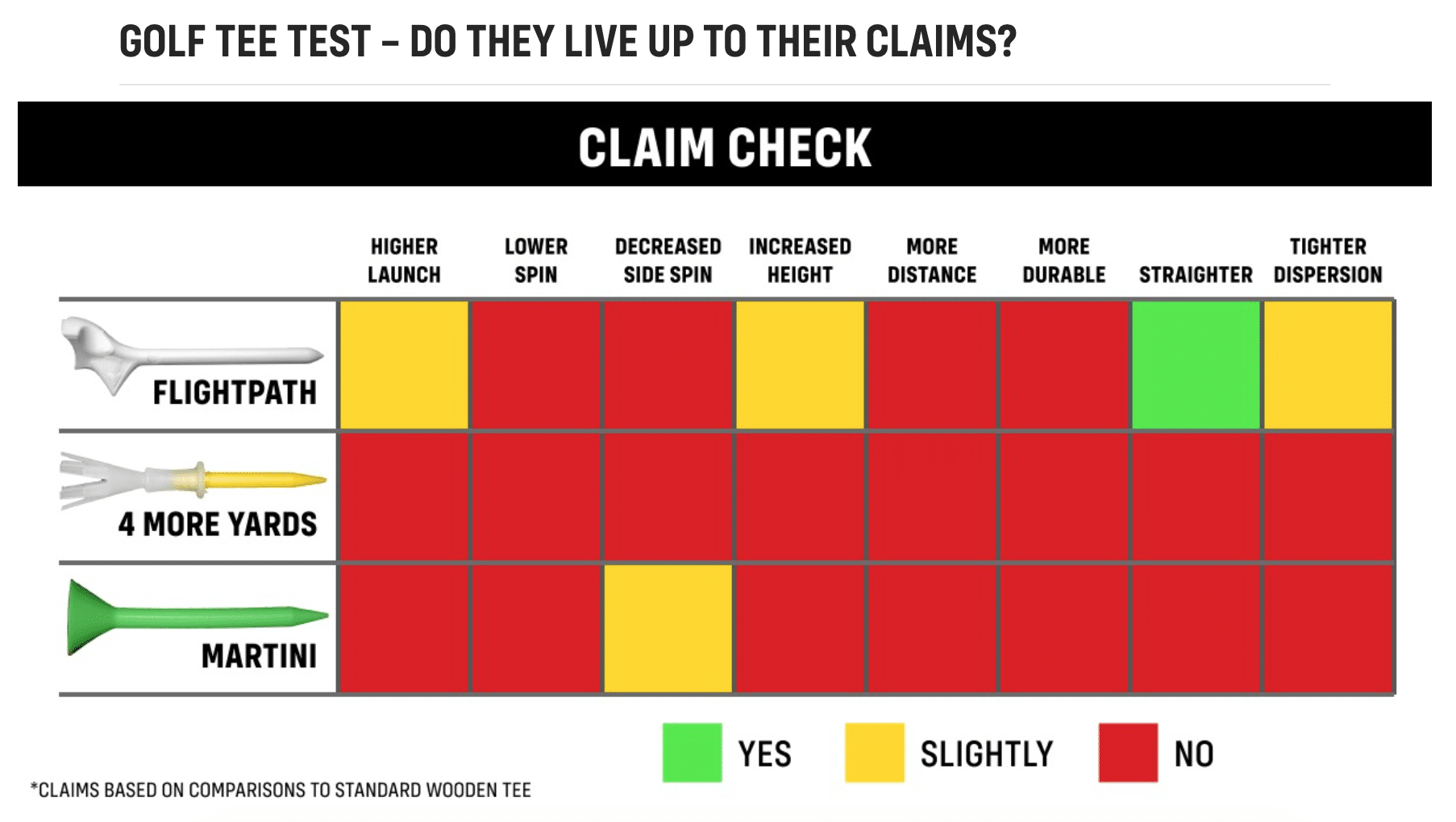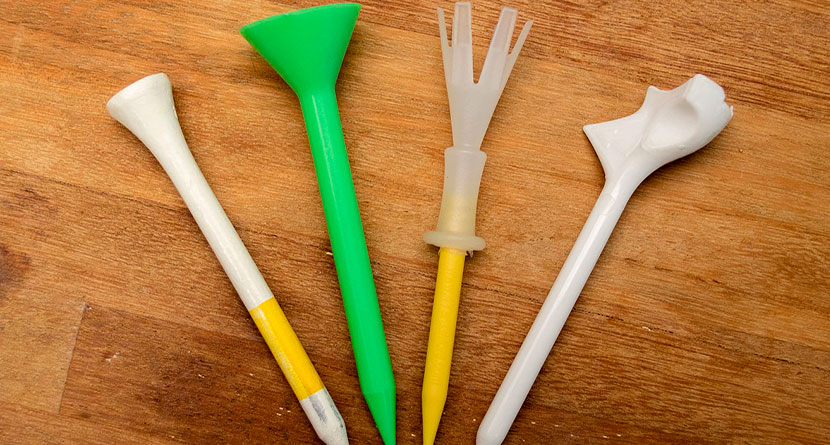More and more these days, specialty tees are showing up on courses around the world promising noticeable gains for the golfer whether it be in the distance or accuracy category.
What’s most interesting about these tees is that for the last 100 yards since the advent of Dr. William Lowell Sr.’s “Reddy Tee,” there hasn’t been much that’s changed about golf tees in general. That’s changed in recent years as companies and entrepreneurs have tried to capitalize on promises that often sounded too good to be true.
Being the golf skeptics that they are, the folks at MyGolfSpy.com put three of golf’s modern tees to the test to see just how they performed against old faithful, the wooden tee. The three tees that would be put to the test were the Martini tee, the FlightPath tee and the 4 Yards More tee.
🚨 GOLF TEE TEST 🚨
Can you gain distance & accuracy by using a specific golf tee?!?
● Wooden Tee
● FlightPath
● Martini
● 4 Yards MoreTEST RESULTS: https://t.co/s8pyjgTVdv pic.twitter.com/cREweTjqgS
— MyGolfSpy (@MyGolfSpy) November 23, 2020
The test parameters were simple: ball and clubhead datat were collected using a top-of-the-line launch monitor, the same drivers and golf balls were used throughout, tee heights were normalized relative to ground level and in total, 120 drives were hit using each tee.
The goal of the test was basically a practice in myth-busting — do these tees do what they promise? Beings that different tees are promising different things, each tee was tested against its own claims as opposed to being put up against the other tees.
The test results for each tee were surprising in their lack of performance. In all but one instance, the tees not only failed to live up to their marketing hype, they were simply outperformed by a piece of wood.
The lone actionable characteristic of the three tees tested was that the FlightPath tee did go straighter than the wooden tee on average, tightening the dispersion by more than two yards.
As for the 4 More Yards tee, it should be called the 2 Less Yards tee, according to the results of the test. And the best characteristic of the Martini tee was its ease of teeing up the ball and finding the tee after hitting it.

MyGolfSpy’s conclusions were, as expected, bluntly written.
“While we did find hints of a slight performance advantage for a narrow set of metrics, we found no reliable evidence to suggest any of the alternative tees tested provides any significant benefit over wood. Nothing here is going to give you 10 more yards, but you probably knew that already. Where advantages do exist, they’re largely matters of convenience.”
If you’re looking for measurable improvements to your game, you’re not going to find it from a tee. Nearly 100 years after Dr. Lowell’s invention, the wooden tee is still the best on the market.




